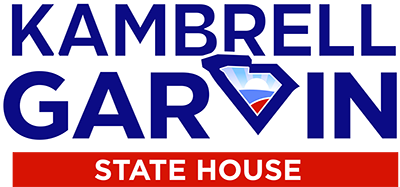Over the past several weeks our state has been forced to grapple with the novel coronavirus pandemic. This contagion has exposed the glaring gaps in health care access within South…
Read MoreThe House of Representatives amended, approved, and sent the Senate H.5201, the General Appropriation Bill, and H.5202, the joint resolution making appropriations from the Capital Reserve Fund, which together comprise the FISCAL…
Read MoreThe House of Representatives and the Senate adopted the conference committee report on S.16, legislation that relates to EMERGENCY REFILLS OF PRESCRIPTIONS BY PHARMACISTS, and the bill was enrolled for ratification. Current…
Read MoreThe House of Representatives amended, approved, and sent the Senate H.4431, a bill to enact the “SOUTH CAROLINA BUSINESS LICENSE TAX STANDARDIZATION ACT” as a means of: reducing the complexity of…
Read MoreThe House of Representatives amended, approved, and sent the Senate H.3197, the “STUDENT LOAN BILL OF RIGHTS ACT”, which establishes consumer protection measures for those who obtain loans to finance postsecondary…
Read MoreThe House of Representatives amended, approved, and sent the Senate H.4940, a joint resolution creating a temporary ELECTRICITY MARKET REFORM MEASURES STUDY COMMITTEE to examine whether the legislature should adopt market…
Read MoreThe House of Representatives and the Senate adopted the conference committee report on H.3357 and the bill was enrolled for ratification. The legislation allows for a HEARING IMPAIRMENT NOTATION ON A MOTOR VEHICLE…
Read MoreThe House of Representatives amended, approved, and sent the Senate H.4760, a bill revising the STUDENT ASSESSMENTS that are administered in the state’s public schools as a means of: ensuring that…
Read More